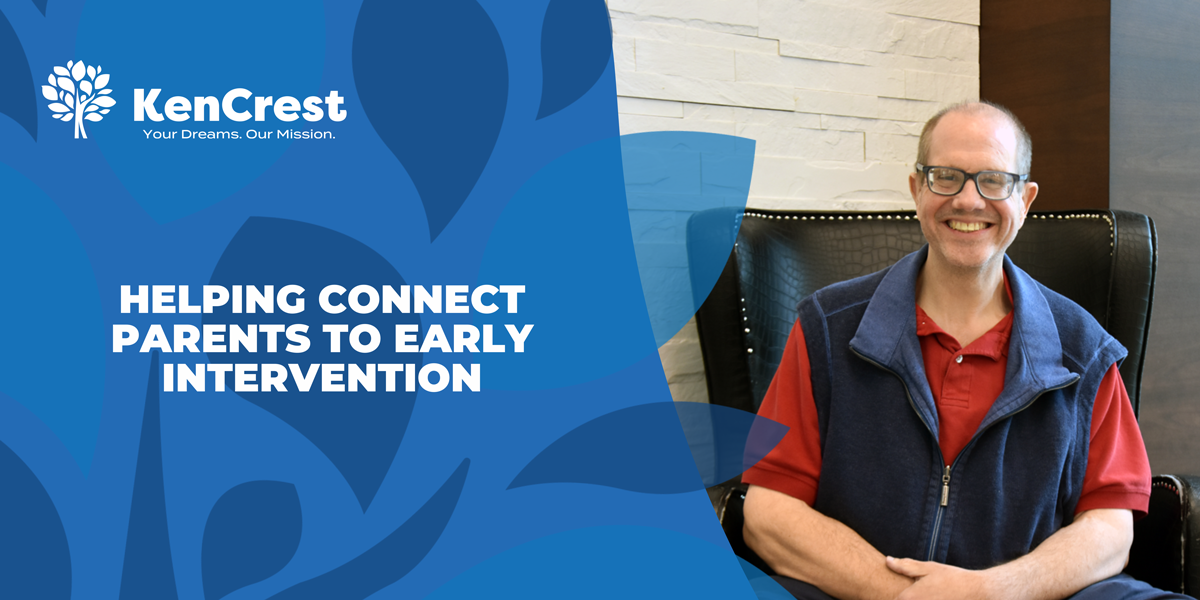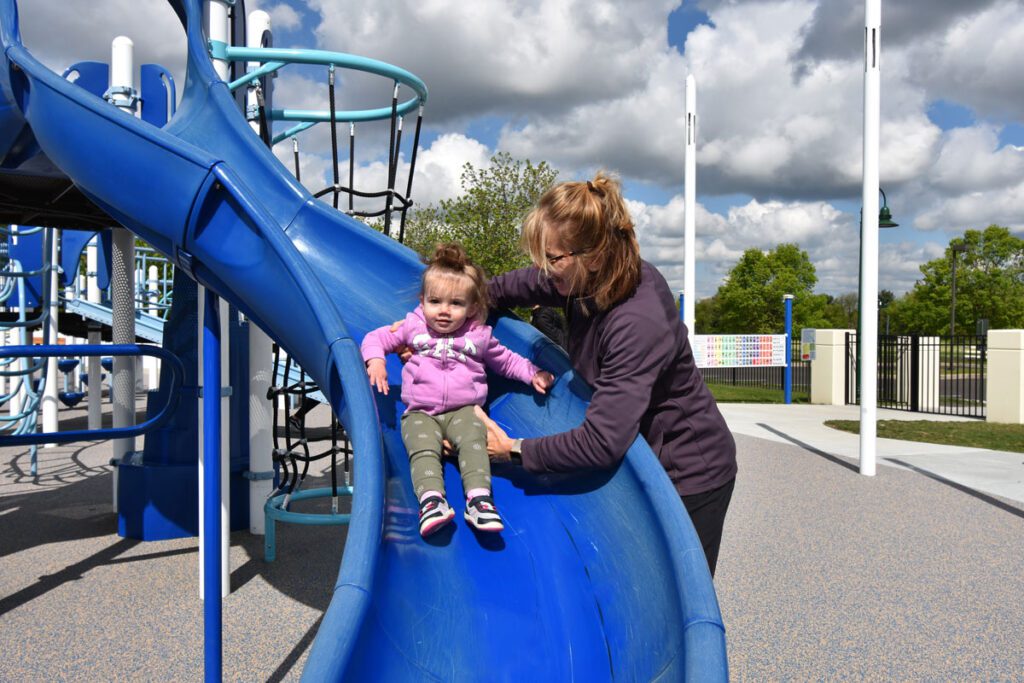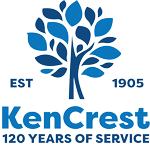
Andy Merrell receives a coaching endorsement for Family-Guided Routines Based Intervention to help connect parents to Early Intervention.
By Sydney Kerelo

Andy Merrell // Photo by Sydney Kerelo
For 29 years, KenCrest Speech-Language Pathologist Andy Merrell has worked with Pennsylvania families in need of Early Intervention services. Recently, he took a step further by becoming one of the first interventionists to receive the state's coaching endorsement title, allowing him to practice Family-Guided Routines-Based Intervention (FGRBI).
KenCrest’s Early Intervention program, established under the Individuals with Disabilities Education Act (IDEA), provides free public education to eligible children. KenCrest offers birth-to-three, three-to-five, and birth-to-five services throughout Southeastern Pennsylvania, in Bucks Chester, Delaware, Montgomery, and Philadelphia counties.
Each program encourages collaboration between physical, occupational, speech, and nutritional therapists, special instructors, Behavioral Support Specialists, and social workers with parents and caregivers. Together, they identify developmental concerns and implement specific strategies in a child's daily life. One method interventionists use is FGRBI, which focuses on teaching parents how to incorporate methods during daily routines, along with an Applied Behavior Analysis-focused coaching program.
FGRBI is a practical approach empowering early interventionists to guide caregivers in actively engaging their young children in learning during daily routines and activities. It complements existing early intervention services and aims to achieve functional and meaningful outcomes by implementing specific and measurable changes in a child's behavior or skills. The approach integrates family-centered practice, adult learning, coaching, and feedback with evidence-based intervention to enhance everyday routines and activities outcomes.
Their website states it “is an approach to early intervention services and supports that integrates family-centered practice, adult learning, coaching, and feedback with evidence-based intervention on functional and meaningful outcomes in everyday routines and activities.” It underscores the pivotal role of the family in decision-making and shaping their children’s development and learning within early intervention.

Andy shared a transformative experience with a family he worked with, emphasizing the importance of parental involvement in a child's development journey. As interventionists spend limited hours with a child, parents play a crucial role in providing continuous care and support. FGRBI not only empowers parents but also instills hope and optimism by highlighting their essential role in their child's development.
“[When hearing about FGRBI], I really liked the idea of being able to support parents and have some methodology that makes it so I can do that better,” says Andy. “One family I work with has three or four grown children that are in their late teens, early 20s, and then a little guy who is severely autistic. She's an older parent, and when we were working with her son, I was throwing some ideas out that were not landing. And I thought about what I could do to help; I felt adrift. So, one day, I went in and took a break and said, ‘How are you feeling now? She was honest with me, and we built up from there. Adult learners have things they need that the kids don’t; it all has to connect to their daily lives. We went back and forth, explaining what the benefit was, what does this mean, what does this lead to, etc., and it helped her understand what she needed to do to help her son and why. At one point, her son repeated a word she said, and you could see her face light up. Those are the moments you live for in this line of work.”
Andy's journey into speech therapy began during college when he discovered his passion for helping individuals develop their communication skills. Initially interested in working with adults with neurodegenerative communication disorders, like Alzheimer’s and Parkinson’s’, he found his calling in working with children with disabilities after meeting a three-year-old with Down Syndrome. This encounter sparked his love for working with children with developmental disabilities, leading to his 29-year career dedicated to helping them thrive and succeed.
Learn more about KenCrest’s Early Intervention program and what we do to help children grow and develop.
